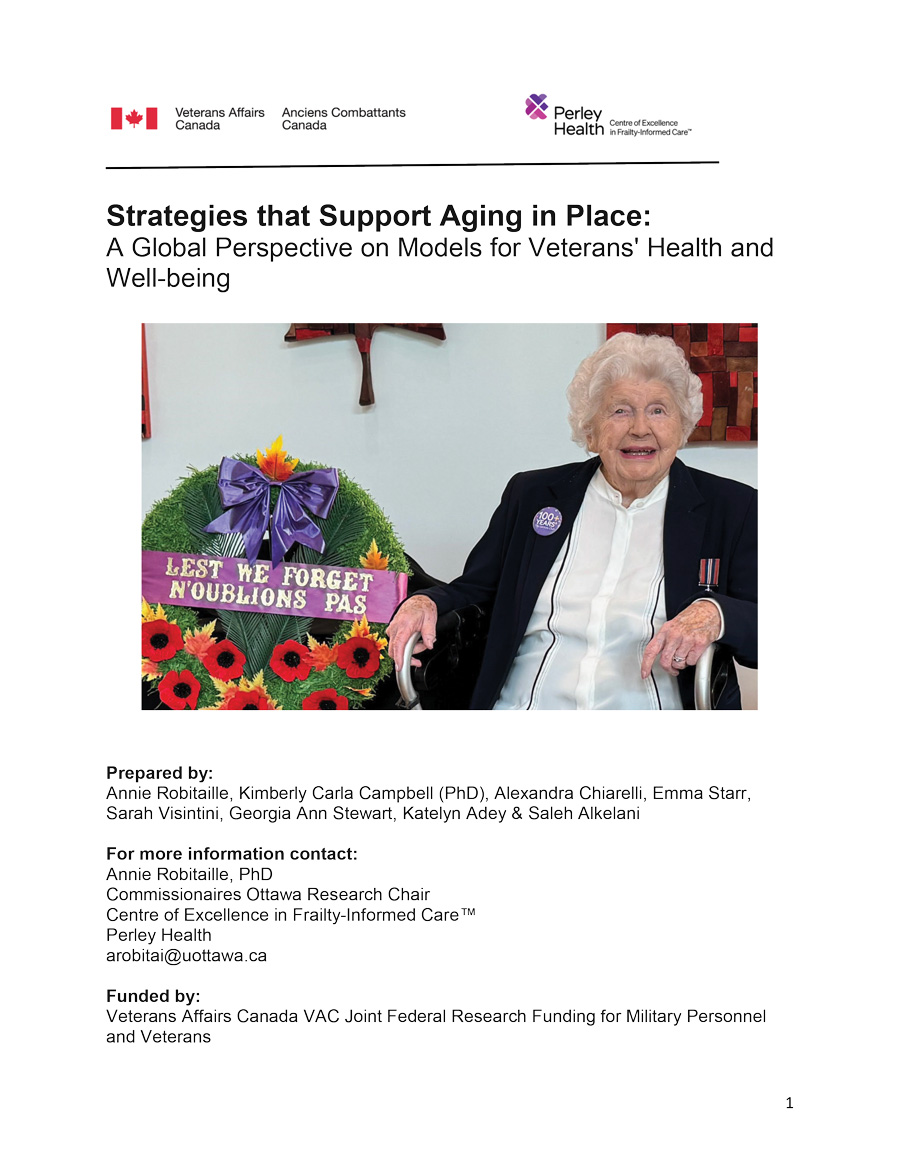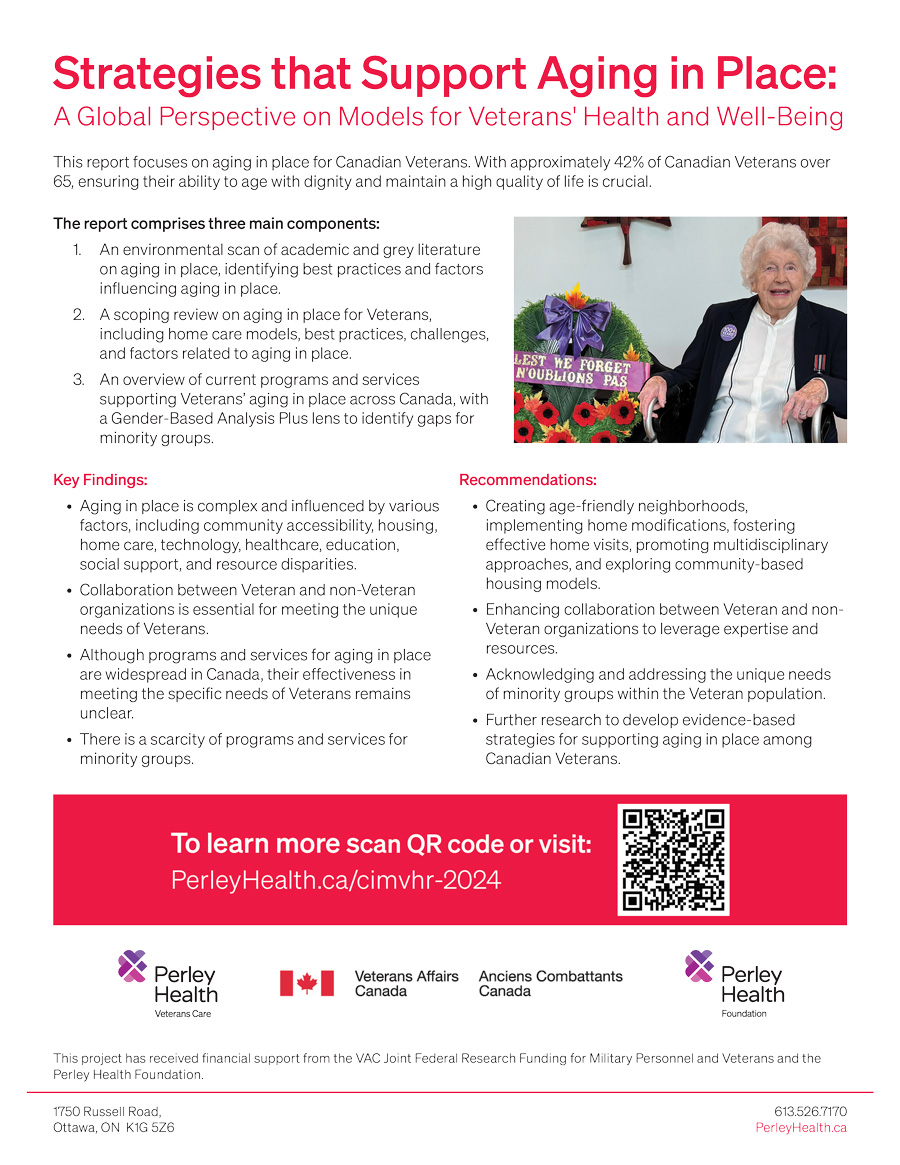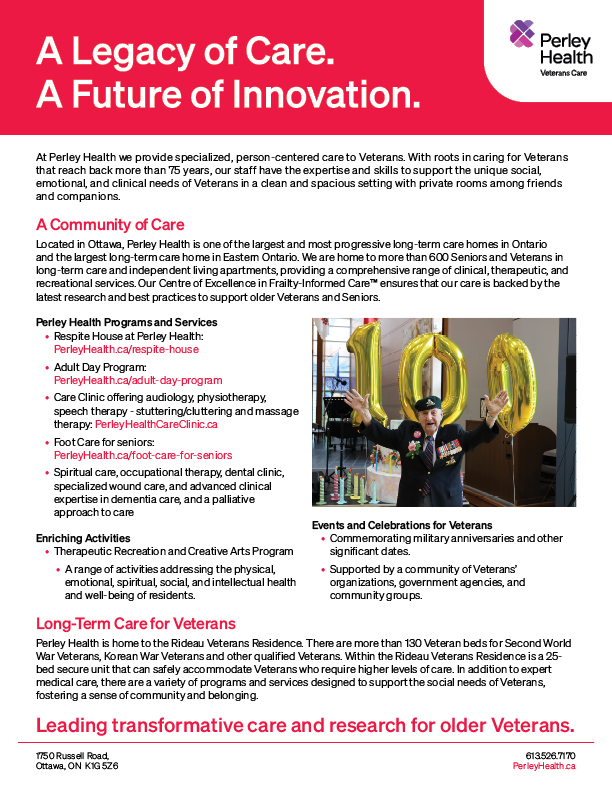Aging in Place for Veterans
Veterans and their families across Canada are welcoming a comprehensive Centre of Excellence report on Aging in Place for Veterans. Strategies to Support Aging in Place: A Global Perspective on Models for Veterans' Health and Well-being presents an overview of current best practices, care models and challenges, along with a series of targeted recommendations. With approximately 42% of Canada's Veterans over the age of 65, the report is both timely and valuable.
Key recommendations to support Veterans aging in place include:
- Create more neighbourhoods that promote walking and social activities,
- Incorporate trauma-informed approaches in community supports,
- Improve collaboration between Veteran and non-Veteran organizations and
- Increase the availability of resources catering specifically to population sub-groups who are known to be especially vulnerable, such as gender-diverse persons and those living in rural areas.
The report also calls for greater differentiation between staying at home and aging in place, which considers independence, availability of resources and safety.
The report includes an environmental scan of academic and grey literature; a scoping review of relevant home-care models, best practices and challenges; and an overview of programs and services available across Canada. To facilitate access to supports, the report provides a detailed list of resources. The report's use of Gender-Based Analysis Plus helps identify gaps for equity-deserving groups.
Veterans Affairs Canada, along with a wide range of stakeholder groups, have welcomed the report. To ensure the report remains both current and relevant, there are plans to update it regularly.
The lead author of the report is Dr. Annie Robitaille, the Commissionaires Ottawa Research Chair of the Centre of Excellence in Frailty-Informed Care™. An Associate Professor with the Interdisciplinary School of Health Sciences at the University of Ottawa, Dr. Robitaille has dedicated her career to the biopsychosocial factors related to aging. Much of her research focuses on people living with frailty in the community and in long-term care homes.
Financial support for the project was provided by Veterans Affairs Canada's Joint Federal Research Funding for Military Personnel and Veterans, and the Perley Health Foundation.


